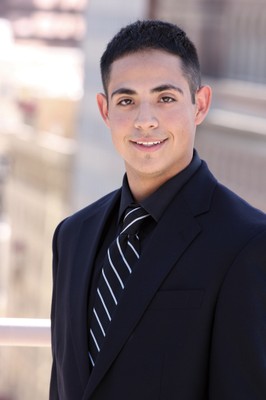Let’s Not Abandon Foster Youth in College Readiness Dialogue
 AVID Center
AVID Center  Friday, March 21, 2014 at 8:13AM
Friday, March 21, 2014 at 8:13AM By Luis A. De La Cruz, AVID Alumnus 
The long-awaited 18th birthday – a time when many can call themselves adults without having to undertake the responsibilities accompanying that designation. It’s a time of celebrations, gifts, and much-expected independence where decisions will be made about educational, occupational, and social aspirations.
When you are in foster care, the long-awaited becomes the long-dreaded 18th birthday. From one day to the next, you experience the sudden loss of a home and financial safety net; the loss of the insufficient and hollow but nevertheless, sole relationships in your life; your few belongings placed and handed to you in a black trash bag. For the first time, you have the independence to exercise your free will; but how you exercise it comes with caustic consequences and there is very little room for error. There is no one to fall back on.
While my professional experience informs my understanding of what it means to be an aspiring student navigating the complex and often fraught foster care system, as an alumnus of foster care myself, I am keen to these challenges. I came into foster care after my mother abandoned me and my father was deported to Mexico. For a very long time, my AVID family in Mesa, AZ was the only family and source of support I had. Later, amazing people were placed in my path—my foster parents. I graduated high school and went on to college. I was fortunate to have found care and support during the most difficult times of my life and have somebody to fall back on. Unfortunately, most of the children and youth in foster care are not as lucky.
Children and youth who experience foster care are often forced to embark on their journey toward adulthood without the benefit of typical growing up experiences that teach self-sufficiency, or without the family supports and community networks essential for achieving independence, well-being, and successful adult lives.
These are just a few of the factors that make the idea of higher education an unrealistic option for many foster children. Those that make it to college, similar to our veteran population, come to college with a unique experience: violence, trauma, abuse, abandonment, grief, and loss– almost a type of war itself and a unique culture, the foster care system. They too have difficulty adapting to civilian life.
When it comes to foster youth, college readiness is not only about making sure that these students have the combination of skills, knowledge, and habits of mind to be successful in college courses. Equally important becomes the college’s readiness to serve students formerly in foster care.
In addition to working with students that face disproportional educational outcomes even when compared to other at-risk groups including: low-socioeconomic status, English language learners and students with disabilities, post-secondary institutions face the difficult task of identifying an invisible population.
Despite these challenges institutions of higher learning can take action. Our schools can create a culture of consciousness and make public statements of awareness so as to facilitate outreach efforts through self-identification. In addition, education must not be a one-way stream. The lack of awareness among faculty, service personnel, and leadership about our foster care student population and the unique challenges they encounter presents a major barrier for properly supporting the educational needs of these students. Institutions need to undertake a “needs analysis” and align critical supports and services that can meet the challenges and resource needs of students that experience foster care.
There is a powerful element that is born from the very difficult circumstances and adversity that foster youth experience: exceptional resiliency. If our schools do their part to educate themselves, students who are alumni of foster care will too. This exceptional resiliency, when presented with the right supports and services at our schools, has great potential to yield exceptional success.
As we continue the dialogue on student preparation, college readiness, and institutional conditions that support student success, let us not forget that somewhere on campus there is a student that experienced foster care and whose potential may be overshadowed and limited by our incomprehension.
Luis A. De La Cruz is an AVID and foster care alumnus. He graduated magna cum laude from Barrett, the Honors College at Arizona State University with dual business degrees in May 2013. As an appointee of the Arizona Supreme Court, he serves on the state’s foster care review board to provide recommendations to the Court, Governor and Legislature regarding foster care statutes, policies and procedures. As a program development consultant, he partners with public and non-profit organizations to improve the delivery of services and outcomes for youth that experience foster care.
To hear Luis’s AVID story, see his 2009 Summer Institute speech. And for more insights on a student’s life in the foster care system, please also listen to AVID Alumnus Jonathan Grant Brown’s story.
Reader Comments